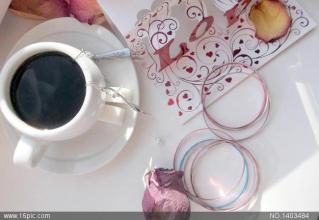Introduction to the description of the flavor of the brewing method of Salvadoran coffee.
The national emblem of El Salvador was launched on September 15, 1912.
National emblem of El Salvador
National emblem of El Salvador
The national emblem is an equilateral triangle whose three yellow lines represent equality, truth and justice respectively. Five volcanoes rise between the Pacific Ocean and the Atlantic Ocean, symbolizing the five countries in Central America. The "pole of freedom" and the red "cap of freedom" stand high on the top of the mountain, emitting the light of freedom and liberation. In the golden light, September 15, 1821 is the day of El Salvador's independence, and the rainbow in the sky overflows with joy and hope. Five Central American federal flags revolve around the national emblem, expressing El Salvador's desire to reorganize the federation. At the bottom is a yellow ribbon with "God, Unity, Freedom" written in Spanish, green laurel branches and leaves around the periphery of the triangle, making the national emblem round, the outermost golden Spanish writing the country's name "Central American Republic of El Salvador" El Salvador judicial power is exercised by the Supreme Court, the Procurator-General's Office, and so on. The Supreme Court is composed of 15 judges (including the President) and is elected by Parliament. The President of the Supreme Court shall serve for a term of five years and shall be eligible for re-election. Judges are appointed for a term of nine years, with 1/3 re-elected every three years. The Attorney General shall be elected by Parliament for a term of three years and shall be eligible for re-election. Oscar Armando Pineda Navas (Oscar Armando Pineda Navas), president of the Supreme Court, took office in August 2014. Attorney General Sonia Elizabeth Cortez de Madeleine (female, Sonia Elizabeth Cort é z de Madriz), took office in January 2010 and was re-elected in January 2013
El Salvador's coffee accounts for 40% of the country's exports, and it is usually picked in November, December and January-March of the following year. The export of raw beans lasts almost all year round. Coffee is produced in seven of the country's 14 provinces, with the largest number in the northwestern provinces of chalatenango and santa ana. El Salvador produces 100% Arabica coffee, 68% of which is bourbon, which usually grows at an altitude of 1062 Mel 1972 meters. On the other hand, El Salvador has a unique mountain, river and plateau, which provides a suitable environment for the growth of bourbon coffee. At the same time, El Salvador's suitable temperature, abundant precipitation and fertile soil are also indispensable natural conditions for breeding high-quality coffee beans. Salvadoran coffee, like other typical island beans, is well-balanced, soft and good in texture.
Central American countries generally distinguish quality grades by altitude, such as Costa Rica, Guatemala, Mexico, Honduras and other countries. Similarly, El Salvador is graded by altitude. At high altitudes, due to the cold climate and slow coffee growth, the density of raw beans will be higher, the hardness will be stronger, the unique acidity of Arabica will be better, and of course the better the quality will be. Therefore, the higher the altitude of coffee growth, the better the flavor, on the contrary, the lower the altitude, the higher the temperature, the faster the growth rate, the lower density, the lower hardness and the worse quality of raw beans.
So much for the introduction of Savaldo, so let's go back to the original topic: what surprised me?
The first El Salvador to drink is washed beans, medium-shallow baked, warm and gentle, smooth entrance, sour and sweet mellow thickness are very regular, do not have too prominent flavor characteristics, so do not leave too much impression. But the flavor of tanning El Salvador becomes very recognizable and amazing. After grinding, the dry aroma gives off a pleasant tropical fruit aroma, followed by steaming, extraction, and until the end, a steady stream of jackfruit aroma. As soon as the extraction is over, I can't wait to take a sip. Strawberries, brown sugar, faint spices, and then two more sips, the creamy taste can be described with an advertising phrase-"silky at the moment." . This country is a small coffee-producing country, which is very suitable for honey treatment and solarization. On the whole, honey treatment and sun treatment have also given a new soul to El Salvador. The long-lasting taste is rich, sweet and sour, chocolate, unique tropical fruit notes, let people remember deeply.
Finally, for the way this coffee is made, I personally recommend hand brewing. Hand flushing can show its unique charm and experience its rich aroma step by step in the process of grinding and extraction. In addition, it can also be extracted by siphon, which shows the same characteristics as Yega Schiffe.

Important Notice :
前街咖啡 FrontStreet Coffee has moved to new addredd:
FrontStreet Coffee Address: 315,Donghua East Road,GuangZhou
Tel:020 38364473
- Prev

Introduction to the extraction degree of Cuban Crystal Mountain Coffee Flavor description Price Variety producing area
Cubita adheres to the principle of perfect coffee, only makes individual coffee, the picking of coffee beans is done by hand, and all the particles of coffee beans are strictly selected according to the standard of sieve 17-19, plus washing coffee beans, to a large extent, remove defective beans and other impurities to ensure the quality of coffee. It has a high reputation in the coffee industry. Careful people will find that Cubita has a relationship with other people
- Next

An introduction to the description of the Flavor of main Coffee varieties from Nicaragua
Planted with volcanic ash and shaded trees, it produces high-quality Nicaraguan coffee with a mediocre, soft and slightly sour flavor. Nicaraguan coffee is the largest of all coffee beans, while MADRIZ (Madriz) is located in the mountains of northern Nicaragua, adjacent to NuevaSegovia,Jinotega and Esteli, a quiet and elegant area with the famous Somoto Gorge
Related
- Detailed explanation of Jadeite planting Land in Panamanian Jadeite Manor introduction to the grading system of Jadeite competitive bidding, Red bid, Green bid and Rose Summer
- Story of Coffee planting in Brenka region of Costa Rica Stonehenge Manor anaerobic heavy honey treatment of flavor mouth
- What's on the barrel of Blue Mountain Coffee beans?
- Can American coffee also pull flowers? How to use hot American style to pull out a good-looking pattern?
- Can you make a cold extract with coffee beans? What is the right proportion for cold-extracted coffee formula?
- Indonesian PWN Gold Mandrine Coffee Origin Features Flavor How to Chong? Mandolin coffee is American.
- A brief introduction to the flavor characteristics of Brazilian yellow bourbon coffee beans
- What is the effect of different water quality on the flavor of cold-extracted coffee? What kind of water is best for brewing coffee?
- Why do you think of Rose Summer whenever you mention Panamanian coffee?
- Introduction to the characteristics of authentic blue mountain coffee bean producing areas? What is the CIB Coffee Authority in Jamaica?

